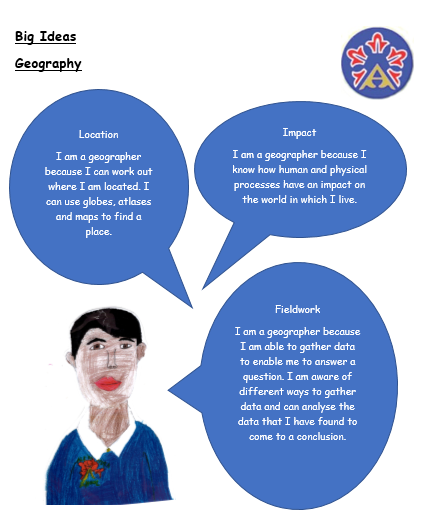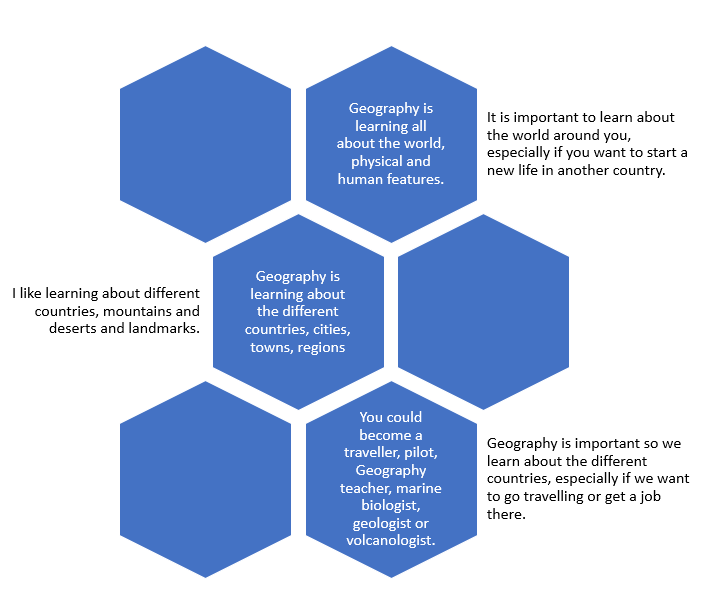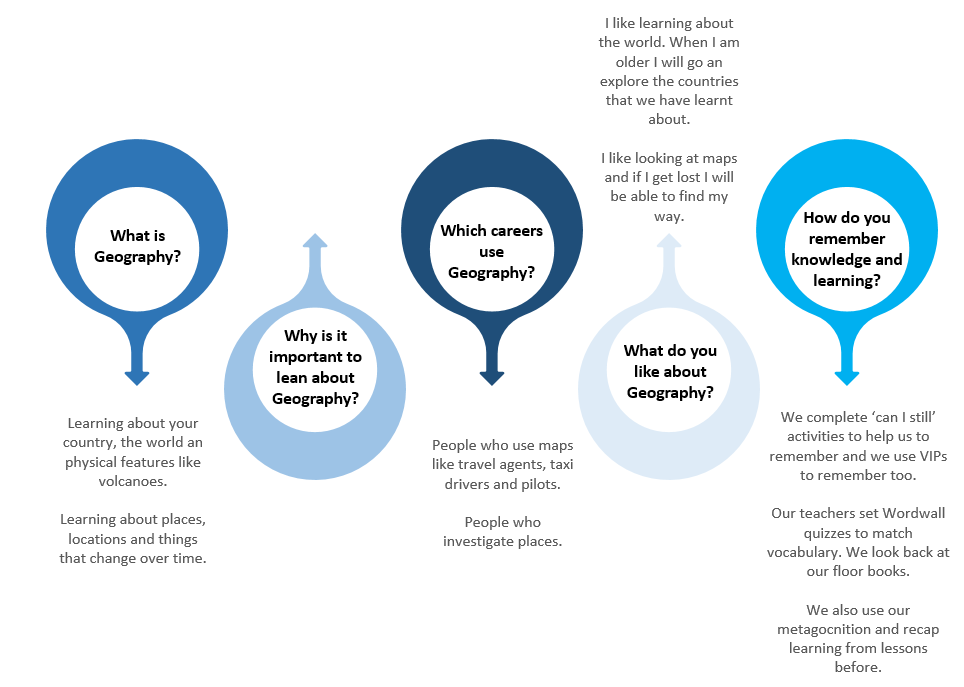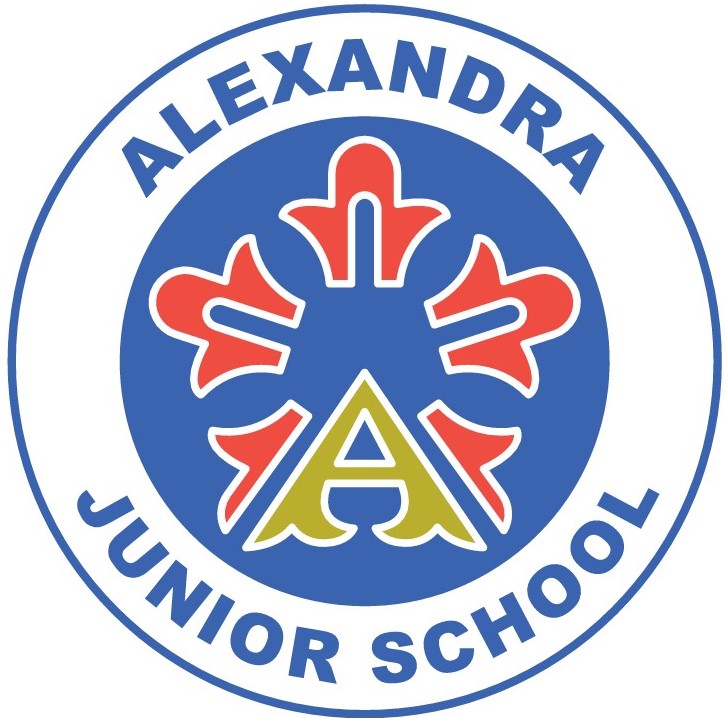Geography
Geography Vision
(Subject Lead: Mrs. A. Kaur)
At Alexandra Junior School, we aim to provide children with an understanding of the place and environment in which they live. Children learn about their local area, and they compare their life in this area with that in other regions in the United Kingdom and further afield. They learn how to draw and interpret maps, and they develop the skills of research, investigation, analysis and problem-solving. Through their growing knowledge and understanding of human geography, children gain an appreciation of life in other cultures. Geography teaching also motivates children to find out about the physical world, and enables them to recognise the importance of sustainable development for the future of mankind. It is our intent that the Geography that the children learn during their time at Junior School, develop a sense of curiosity and become fascinated about the world in which they live that will stay with them for a long period of time.
Integrated within our daily life is our Alexandra Promise to our pupils and our school context-based drivers, the 5Es (Excel yourself, Embrace yourself, Explore the world, Engage with others, Express yourself). Alexandra Schools understand that every child has the right to an education (as in accordance in with UNCRC article 28). The teaching of Geography will fulfil the children’s rights.
Our principle aims for Geography are:
- to stimulate the children’s interest in and curiosity about their surroundings.
- to enable children to gain knowledge and understanding of their local surroundings and places in the world;
- to increase children’s knowledge of other cultures and, in so doing, teach a respect and understanding of what it means to be a positive citizen in a multi-cultural country;
- to enable children to know and understand environmental problems at a local and regional level
- to develop in children a variety of other skills, including those of enquiry, problem-solving, ICT, investigation, and prediction
- to enhance their sense of responsibility for the care of the environment.
We welcome you to review the Curriculum and Pedagogy documents to see how the Geography curriculum is put into practice.
Subject Lead Statement
I would like to introduce myself as Miss Vernon, Geography lead here at Alexandra Junior School. The way in which the curriculum is designed allows for a broader, deeper understanding of the four areas of geography identified in the curriculum. The way geography is taught will allow children to gain contextual knowledge of the location of globally significant places and understanding the processes that give rise to key physical and human geographical features of the world. This will include both local and global studies. The children will also begin to identify how these features can vary and change over time. It is the aim that the way in which geography is taught will stimulate children’s curiosity and a fascination of the world which will stay with them for life.
The units are intended to improve the children’s geographical vocabulary, map skills and knowledge of geographical facts and provides opportunities for consolidation and challenge. The units should allow pupils to gain an understanding of diverse places, people, resources and natural and human environments. As pupils progress through our education system, their growing knowledge about the world should help them to deepen their understanding of the interaction between physical and human processes.
We aim to make geography as practical as possible, making use of the outdoor space where appropriate. To ensure that high standards are maintained, I regularly monitor the children’s learning. This is in the form of floor book scrutinies, pupil interviews, lesson observations and by looking at the assessment which is done at the end of each unit.


Pupil Voice

Pupil Voice
Geography at Home
Take a look at these videos to learn a little about some of the Geography units that we will be looking at this year.
In Year 3, the children learn all about Europe.
In Year 4, the children learn all about the journey of a river.
In Year 5, the children learn all the geography of mountains.
In Year 6, the children learn about rainforests and the amazing creatures that call it their home..
